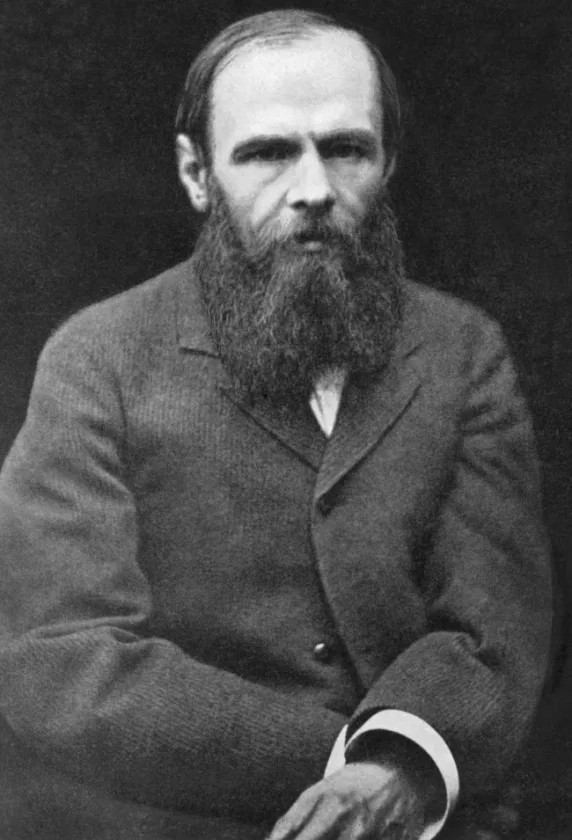
Fyodor Dostoevsky released “Notes from the Underground” in 1864. It stands out as a significant piece of existentialist literature.
The work delves into the complexities of human nature and societal constraints, offering a reflection on the necessity of individual freedom for a meaningful and authentic existence.
The novel is divided into two parts. The first part, titled “Underground,” is narrated by an unnamed character known as the Underground Man. While, the second part, “Apropos of the Wet Snow,” presents specific events in the Underground Man’s life and exploring his interactions with others, including soldiers, schoolmates, and a prostitute named Liza.
Part I: Underground
In the first part of the book, the Underground Man is introducing himself with a stark self-assessment. He describes himself as sick, wicked, and unattractive, emphasizing his self-loathing and bitterness.
He is of the view that conscious and educated individuals, like himself, in modern society should inherently be unhappy. He not only expresses his disillusionment with philosophy but also acknowledges the absurdity of holding onto Romantic ideals. His thoughts reflect a sense of existential despair and a disconnect between intellectual ideals and the harsh realities of his life.
He further rants about uselessness of the nineteenth-century philosophical approach called utilitarianism. According to utilitarianism, an action is morally right if it leads to the greatest amount of happiness or pleasure for the greatest number of people. The Underground man criticizes the idea that man’s primary desire is to exercise free will, even if it goes against his best interests. He argues that individuals may engage in unpleasant and unproductive actions solely to demonstrate the unpredictability and freedom of their free will.
Part II: Apropos of the Wet Snow
As mentioned above, in the second section the narrative shifts to specific events in the Underground Man’s life during his twenties in the 1840s. This section provides concrete examples or real-life situations that exemplify the more theoretical and abstract ideas introduced in the first section of the text.
For instance, this segment traces the Underground Man’s development from his early, Romantic-influenced worldview to his later, more mature, and cynical perspective in 1860.
The part talks about how the Underground Man deals with people like soldiers, old classmates, and prostitutes. But because he feels very isolated, he can’t connect with them like most people do. Instead, he sees them with a mix of disgust and fear, making himself feel embarrassed.
This idea makes him regret and dislike himself. It clearly shows how the Underground Man struggles with his feelings and being disconnected from others in his world.
The narration then describes his behaviour in different situations. Like, for instance, he overthinks about letting a soldier pass in the park, even though he doesn’t know the soldier. Then, he awkwardly follows some old school friends to a dinner, where he insults them and desperately wants their attention. Later, he tries to save a prostitute named Liza by talking passionately about the bad things that could happen to her. Later, when Liza visits him at his messy apartment, the Underground Man feels ashamed and angry when he thinks she might pity him. He continues to insult Liza, and she leaves upset. Top of Form
At last, the Underground Man makes up his mind to stop writing his notes. However, in a note added by the author, Dostoevsky, it is revealed that the Underground Man struggles to stick to this decision. The manuscript of his notes continues for many more pages, surpassing the point where he initially planned to conclude it.

Takeaway
Dostoevsky excels in revealing the deepest fears and desires hidden in the subconscious mind. He skilfully dissects intricate human motivations. It’s like unravelling and living through the essence of existentialism at its finest.
This protagonist of this book is characterized as someone unable to act, continually humiliating himself and embarrassing others—a self-regarding, truculent, miserable, and paralyzed man.
It could be that Dostoevsky might have presented his own ideas through the voice of a brilliant man while simultaneously portraying him as self-destructive and messy.
If we try to answer, what makes this book a classic? Well, this novel continues to be pertinent today because it explores themes that people grapple with across generations – issues like industrialism, utopian ideals, expectations, technology, competition, and the relentless pursuit of success. His insightful analysis of behavior allows him to dig deep into hidden layers of the human experience.
Now, why does existentialism occur in first place?
Dostoevsky critiques utopian ideals and societal constructs. He looks at this unnamed main character and thinks people aren’t just logical; they’re also guided by feelings and cravings that don’t always make sense. Utopias usually depend on logic, but that ignores the messy and unpredictable side of human behavior.
So, because of all this, we get something called existentialism. It’s like saying, “Well, if people are all complicated and not just driven by logic, maybe we need to figure out our own meaning in life.” Existentialism is all about that personal journey and making sense of things on our own terms.
And with the main character, he’s all about being isolated and doesn’t like how people act. It really shows how tough it is to connect with others and feel like you belong. This whole situation makes his brain swirl with questions about what life’s about and why things happen the way they do.
The Underground Man really takes a deep look inside himself, thinking hard about what’s going on in his own mind. He uncovers all these inner battles and conflicting thoughts within himself.
I reckon the Underground Man acts the way he does because he feels kinda lost and purposeless. His higher intelligence makes him see that everyday stuff doesn’t really matter, and that makes him start judging everyone. Being a bit arrogant and putting himself above others are seen as consequences of this realization.
The nature of the Underground Man is then viewed as that of a fully enlightened and extremely rebellious individual due to his awareness of the futility in societal norms.
Reading this book might make you reflect deeply or contemplate things in your own mind. If you’re interested in exploring this work, you’re in luck – it’s in the public domain and available for free on Project Gutenberg. Go ahead, give it a try!



